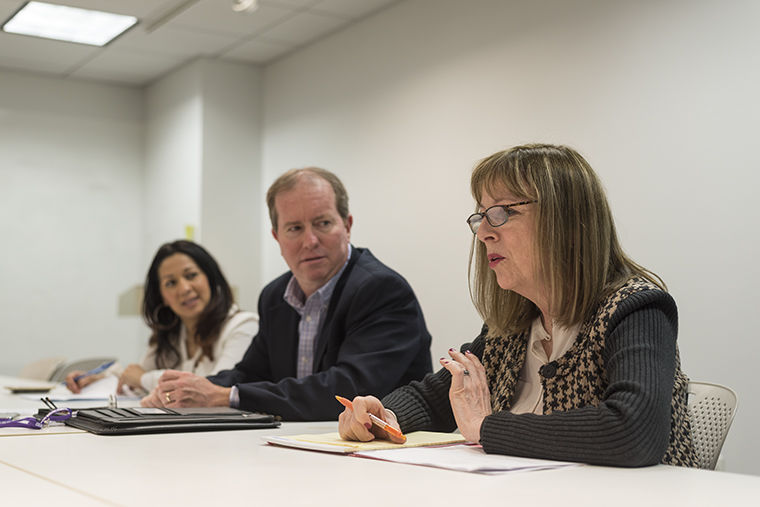Series educates faculty on legal obligations in the classroom
March 3, 2017

Beverly Anderson, Associate Dean of Student Health and Support, provided faculty members legal information about accommodations students with disabilities.
Faculty members learned about legal policies that apply to the classroom including educational policies regarding discrimination, harassment and privacy during the second “LegalToolkit for the Inclusive Classroom” session.
The first of the two sessions was hosted in the 1104 S. Wabash Building on Feb. 20.
Ames Hawkins, associate provost of Faculty Research Development and associate professor in the English Department, organized the March 1 forum in conjunction with the Student Affairs Office.
“The college is having a conversation about this at large, so it makes sense that we ought to have [the sessions],” Hawkins said. ”Basically, it’s connected to teaching pedagogy, learning and how to provide the most hospitable learning experience.”
The session, hosted in the 600 S. Michigan Ave. Building, was a part of the Diversity and Inclusion in the Classroom series, which was designed to educate and create conversation among faculty members about ethical classroom practices that apply to the diverse backgrounds, identities and perspectives of the student body, according to a post from the Office of the Provost on the Columbia website.
Dean of Students John Pelrine, Associate Dean of Student Health and Support Beverly Anderson, and Director of Equity Issues and Title IX Coordinator Rabia Khan Harvey led the forum and spoke to the five attending faculty members. Some of the policies discussed included disability rights and accommodation expectations, Title IX procedures, and student privacy policies covered under the Family Educational Rights and Privacy Act of 1974, an act that allows a student to control, inspect and request amendments on their educational records.
All faculty members received a Feb. 21 email from Hawkins informing of them of the event. Hawkins said the sessions are not required by faculty.
“It was a good starting point for starting to build relationships with the faculty and making it clear to them that we are here to assist them,” Pelrine said.
During the assembly, several faculty members said they had received reading materials and online training on FERPA but were never involved in any hands-on training before. Hawkins said during the meeting that she is working to offer the session directly to individual departments and that one department chair has already expressed an interest in the idea.
Faculty members were also given the opportunity to ask questions about their own experiences with the issues and received guidance on how to handle future situations.
Elizabeth Davis-Berg, associate chair and associate professor in the Science & Mathematics Department, said faculty members do not always consider the case-specific situations in which to apply their legal training acquired through pamphlets or online instruction.
“This meeting was useful because it went over the major legal issues that faculty need to be aware of,” Davis-Berg said. “As an associate chair, I often get questions from various faculty members and from students about how things work, and so I think I have a better understanding of how things work.”
The next program in the series, titled “Supporting our Faculty with Student Issues in the Classroom,” is planned for March 6 and March 15. The sessions will focus on providing faculty resources and techniques for handling behaviors and issues in the classroom. Discussions with the Diversity, Equity and Inclusion Task Force will be conducted to determine future session topics, according to the Office of the Provost post.
“It really is trying to get something started and trying to see where we need to go, what we need to do, what’s out there and how to coordinate information,” Hawkins said.







